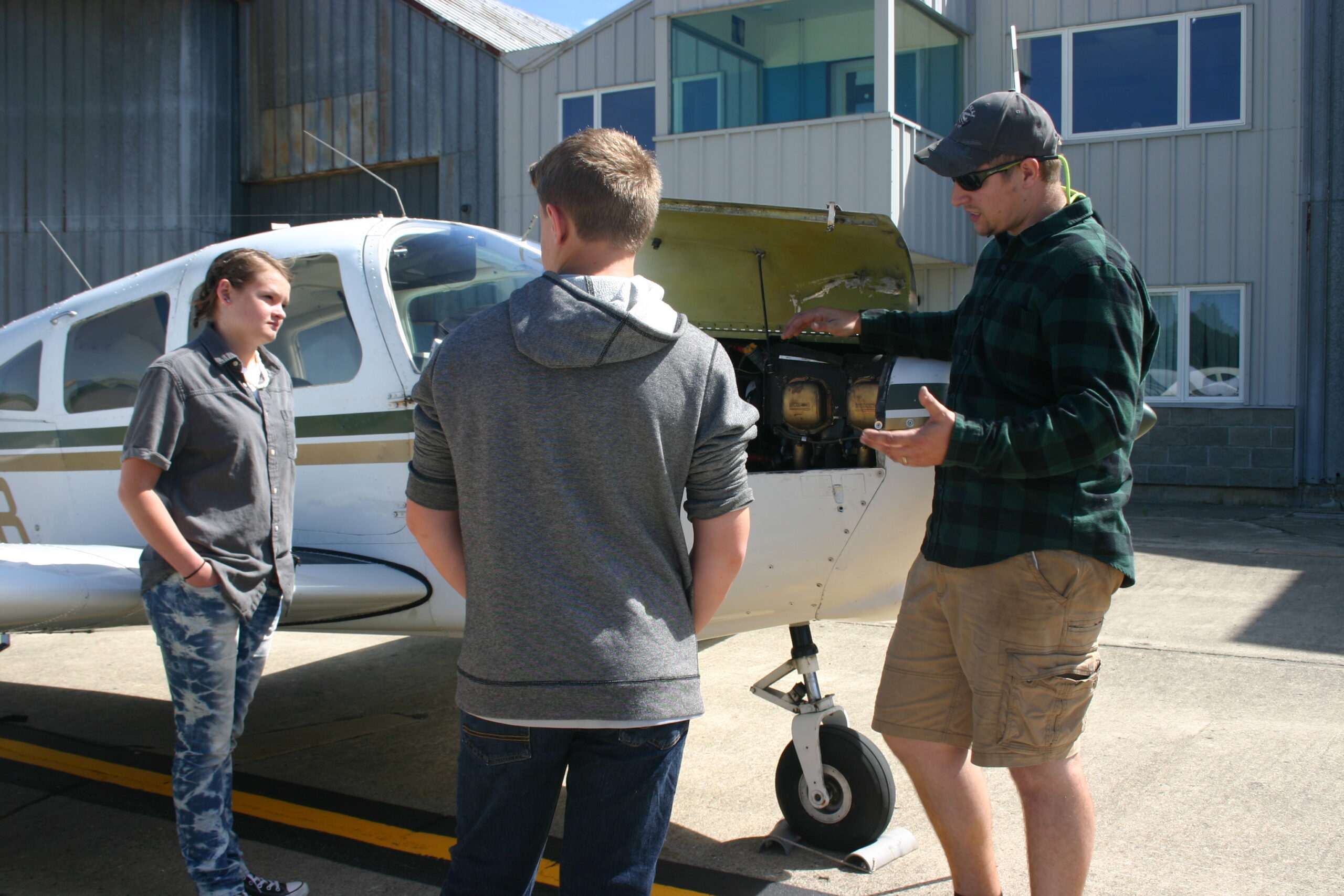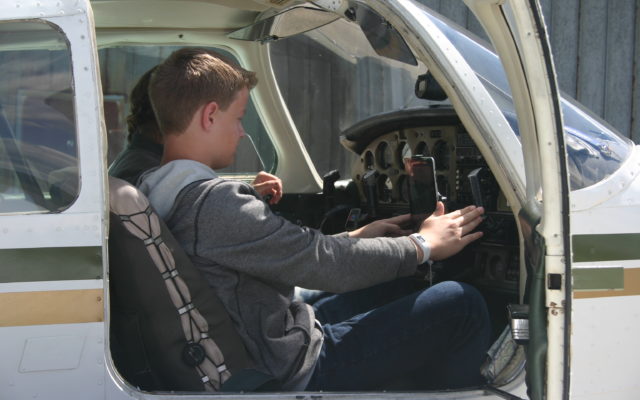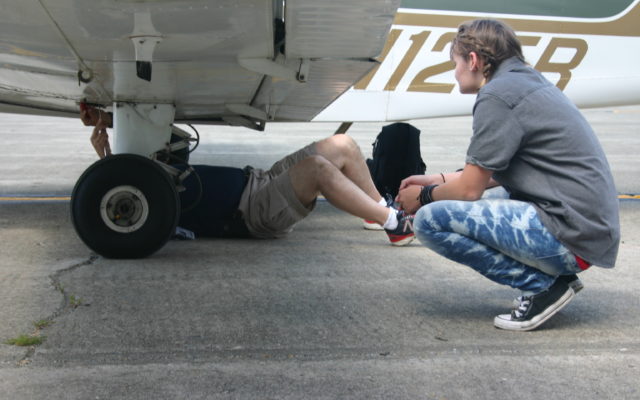
PRESQUE ISLE, Maine — A handful of students recently participated in a summer camp here July 9-13 that showed them how a career in aviation can take them to new heights.
During the 11th annual Flight Camp, hosted by Mapleton-based Baptist Park in partnership with the New Jersey company Brigade Air, high school students spent one week interacting with licensed pilots and learning about the many career fields associated with aviation. The program also focused on missionary aviation.
At the beginning of the week, students learned about various aspects of aviation from how airplanes fly to airport traffic patterns and radio programming before heading downstate to use their newfound knowledge.
On Wednesday, July 11, participants visited the dispatch center at Bangor International Airport. Later that day, students traveled to Central Maine Aviation flight school in Pittsfield and flew with pilot Charlie Surprenant. Under his instruction, all four students took turns flying the small aircraft from Pittsfield to Belfast and back again.
“To look out the window of the plane and see the houses and trees below us was an amazing experience, one that I definitely want to have again,” said Rachel Hubacher, 17, a student from Presque Isle who attended the flight camp.
Hubacher enrolled in the camp because of her strong interest in aviation and noted that the camp has helped her think about her own career goals.
“At first I was interested in flying, but now I think I might want to go into the mechanics side of aviation,” Hubacher said.
On Friday, the four students met with Alec Kindred, director of the Standish-based nonprofit Propelling the Gospel Missions, Inc., and Ross Bartlett, of the Appleton-based Inspiration Aviation Ministries, at the Civil Air Patrol building of the Presque Isle International Airport to learn about the mechanics of general aviation aircraft.
Kindred showed them the ins and outs of his small Cherokee warrior aircraft, from the engine to the wings, and even let them sit inside the cabin for an up close look at radio controls.
Ben Petren, 14, drove nearly five hours from Standish to attend Flight Camp in Aroostook County for the second year in a row and said that he already has been thinking about potential careers in aviation.
“I’m interested in mechanics and I wanted to learn more about how airplanes work,” Petren said.
Pastor Jim Ackerson of Baptist Park noted that for some students, Flight Camp is where their interest in aviation ends, while others have gone on to become military or missionary aviators.
Pilots in the later category work for an organization called Missionary Aviation Fellowship and provide air travel to pastors, teachers and mission groups headed to rurally isolated parts of the world as well as supply much needed food, water and medical supplies to people in those countries.
During the camp, Ackerson encouraged students who are interested in aviation to form connections with established pilots and mechanics and organizations such as Inspiration Aviation Ministries, which helps high school students obtain their private pilot certificate before they graduate and offers a flight instruction camp in August.
“There is only a small percentage of people in the U.S. who have their private pilot certificate, so that’s something that can help students stand out in the job market,” Ackerson said. “It shows employers that they have character and determination.”
Kindred, whose organization collaborates with flight camps across the state, noted that with a shortage in aviation jobs for both pilots and ground-level workers, teens today will have many options to choose from if they decide to seriously pursue aviation.
According to the latest data from the International Civil Aviation Organization, in the next 20 years, airlines will add 25,000 new aircraft to the current commercial fleet of 17,000. By 2026, there will be a need for 350,000 pilots to fly those planes and 480,000 new technicians to maintain them. Seventy-three percent of American air traffic control workers became eligible for retirement between 2005 and 2015.
“There are many different avenues that students can take. Even if they don’t go into flying, learning those basic mechanic and maintenance skills can help them out a lot,” Kindred said. “I always tell students to keep working hard toward their goals and don’t be afraid to have fun along the way.”
- Ben Petren, 14, a student from Standish, sits inside the cabin of an airplane owned by Alec Kindred, of Propelling the Gospel Mission, Inc., with Rachel Hubacher, 17, of Presque Isle. Both Petren and Hubacher are interested in pursuing careers in aviation and learned the ins and outs of aircraft mechanics on July 13 during the final day of the Baptist Park Flight Camp at the Civil Air Patrol building of the Presque Isle International Airport. (Melissa Lizotte)
- Presque Isle student Rachel Hubacher, 17, (right) watches as Ross Bartlett of the Appleton-based Inspiration Aviation Ministries, shows her and three other students the mechanics of an airplane wing on July 13, the final day of the Baptist Park Flight Camp, outside the Civil Air Patrol building of the Presque Isle International Airport. (Melissa Lizotte)









